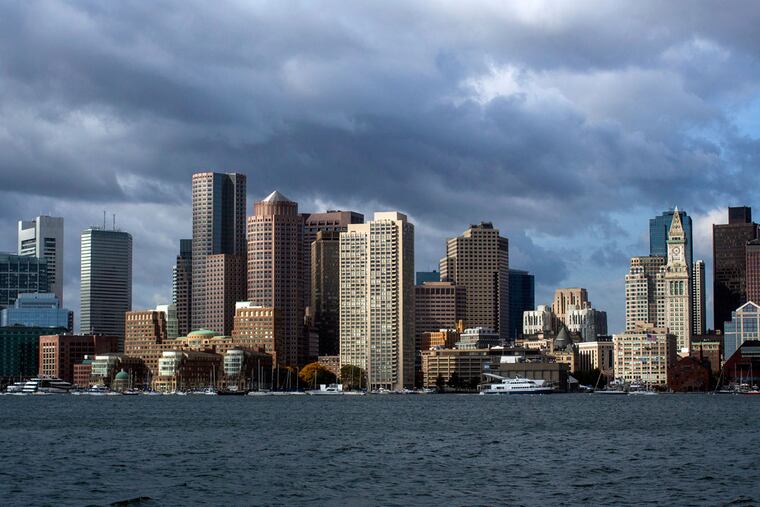What Boston has and Philly lacks in biotech
What does Boston have that Philly lacks? Merck told workers last week it was moving more than 300 jobs out of Montgomery County and New Jersey, and "increasing our investment in areas where biomedical research is converging, specifically in Cambridge, Mass."

What does Boston have that Philly lacks?
Merck told workers last week it was moving more than 300 jobs out of Montgomery County and New Jersey, and "increasing our investment in areas where biomedical research is converging, specifically in Cambridge, Mass."
Adderall maker Shire Plc moved more than 500 jobs from Chester County to Massachusetts last year because "Boston is a biotech center," a spokeswoman said.
AstraZeneca has demolished labs and sold the former high-rise tower and South Campus at its U.S. headquarters just north of Wilmington, and is building its Innovative BioHub next to Cambridge.
Biotech is one of those brainpower businesses that are supposed to keep U.S. burgs like Boston and Philly in business after so many factories left town.
Federal job data show Pennsylvania biotech R&D jobs fell from 17,000 in 2007 (when the feds started counting) to 10,000 last year (still the nation's third-largest cluster).
In Massachusetts, by contrast, the total grew from 25,000 to 30,000, the most of any state.
Why? Travis McCready, CEO of the state-funded Massachusetts Life Sciences Center, first tried to tell me Boston had way more schools, scholars, and stethoscopes than Philly.
Even though we've got CHOP, Jefferson, Penn, Wistar, Temple, Drexel, and PCOM, plus Hershey and Cooper nearby, plus a fat grant hose from the National Institutes of Health in Washington?
But Philly "is missing the venture capital piece," McCready added. Boston has clusters of billion-dollar biotech investors.
Its counterparts here, like the Broad Street banks of old, are famously frugal. We don't build too many towers without tenants. Or labs. And our larger venture capital firms, which aren't large by Boston or Silicon Valley standards, would rather hunt bargains elsewhere than bet big at home.
Meanwhile, our drugmakers, like many other U.S. manufacturers, have cut back on R&D.
"They have mostly recognized what they do well isn't innovation," McCready said. They are "outsourcing innovation" to places where "the community of innovators is robust."
Chris Molineaux doesn't disagree. He runs Pennsylvania Bio, an advocacy group. With corporate and federal research money scarcer, our medical schools know "they can't afford so much science for science's sake. They have to look at products they can commercialize," says Molineaux. So Penn and Temple have hired new tech-transfer managers this year. Like Jefferson and Drexel, "they are changing dramatically to accelerate commercialization."
Spark Therapeautics, born at CHOP, is "the most visible example of gene therapy, which is the wave of the future," said Molineaux. "But this stuff takes a long time."
Also promising: the ex-J&J and Glaxo managers who now run Philadelphia medical start-ups. And the drug distributors here, led by AmerisourceBergen.
The most attractive science, not fancy subsidized "innovation districts," draws investor dollars, said McCready. "Wherever you find the most dynamic innovators and intellectual property, you will see large corporations cluster like flies."
215-854-5194 @PhillyJoeD